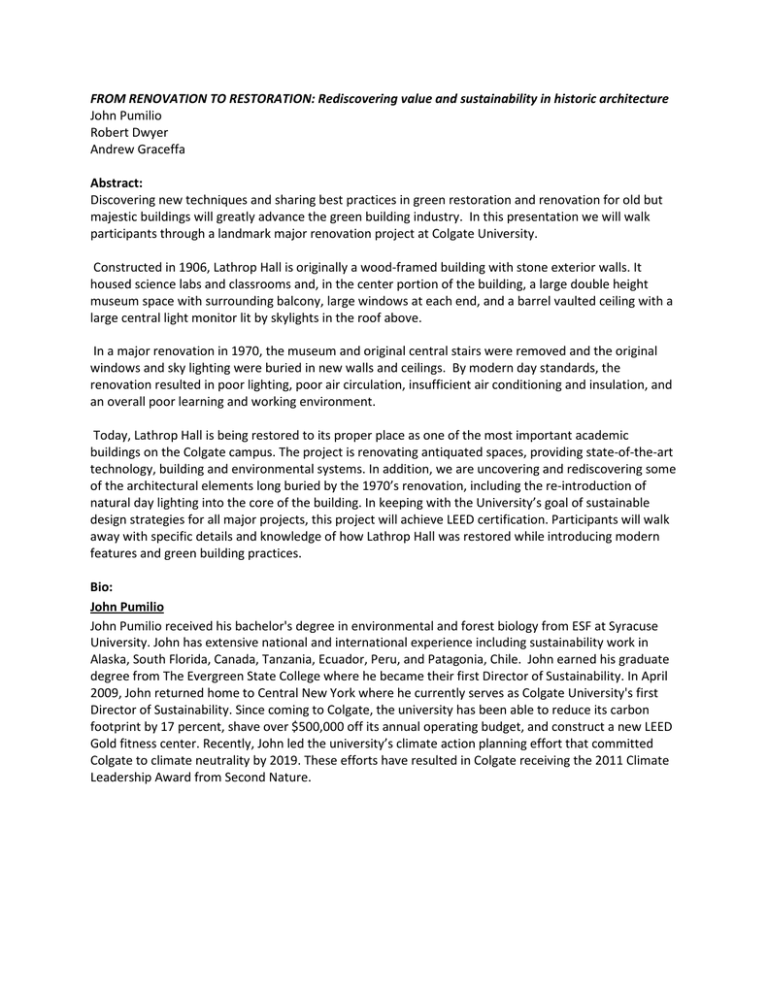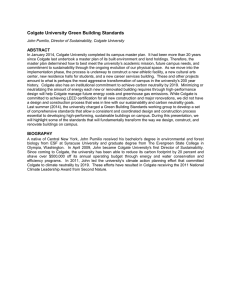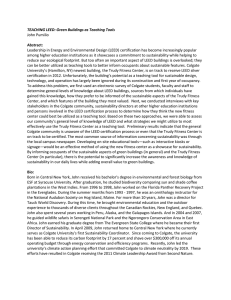FROM RENOVATION TO RESTORATION: Rediscovering value and sustainability in historic... John Pumilio Robert Dwyer Andrew Graceffa
advertisement

FROM RENOVATION TO RESTORATION: Rediscovering value and sustainability in historic architecture John Pumilio Robert Dwyer Andrew Graceffa Abstract: Discovering new techniques and sharing best practices in green restoration and renovation for old but majestic buildings will greatly advance the green building industry. In this presentation we will walk participants through a landmark major renovation project at Colgate University. Constructed in 1906, Lathrop Hall is originally a wood-framed building with stone exterior walls. It housed science labs and classrooms and, in the center portion of the building, a large double height museum space with surrounding balcony, large windows at each end, and a barrel vaulted ceiling with a large central light monitor lit by skylights in the roof above. In a major renovation in 1970, the museum and original central stairs were removed and the original windows and sky lighting were buried in new walls and ceilings. By modern day standards, the renovation resulted in poor lighting, poor air circulation, insufficient air conditioning and insulation, and an overall poor learning and working environment. Today, Lathrop Hall is being restored to its proper place as one of the most important academic buildings on the Colgate campus. The project is renovating antiquated spaces, providing state-of-the-art technology, building and environmental systems. In addition, we are uncovering and rediscovering some of the architectural elements long buried by the 1970’s renovation, including the re-introduction of natural day lighting into the core of the building. In keeping with the University’s goal of sustainable design strategies for all major projects, this project will achieve LEED certification. Participants will walk away with specific details and knowledge of how Lathrop Hall was restored while introducing modern features and green building practices. Bio: John Pumilio John Pumilio received his bachelor's degree in environmental and forest biology from ESF at Syracuse University. John has extensive national and international experience including sustainability work in Alaska, South Florida, Canada, Tanzania, Ecuador, Peru, and Patagonia, Chile. John earned his graduate degree from The Evergreen State College where he became their first Director of Sustainability. In April 2009, John returned home to Central New York where he currently serves as Colgate University's first Director of Sustainability. Since coming to Colgate, the university has been able to reduce its carbon footprint by 17 percent, shave over $500,000 off its annual operating budget, and construct a new LEED Gold fitness center. Recently, John led the university’s climate action planning effort that committed Colgate to climate neutrality by 2019. These efforts have resulted in Colgate receiving the 2011 Climate Leadership Award from Second Nature.







